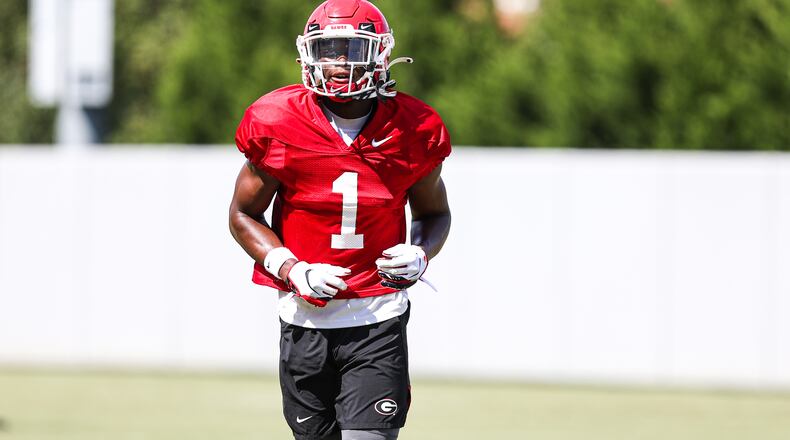Maybe it was a coincidence that the SEC expanded its COVID-19 safety guidelines a day after Georgia State’s star quarterback Mikele Colasurdo announced he couldn’t play this season because of a heart condition the virus created in him. Maybe not.
Either way, the conference leading the way toward playing college football announced that it was including additional heart-examination requirements for its 14 member schools to its laundry list of medical protocols to be met to play ball this fall.
Colasurdo, a prize signee who was Mr. Football in South Carolina last season, detailed on his social-media timeline how an infection of the virus left him with a heart condition known as myocarditis that would force him to sidelines this season.
The SEC on Friday announced that it would be adding a third weekly rapid, COVID-test requirement before games this season, which tentatively is scheduled to start Sept. 26.
The SEC’s “Return to Activity and Medical Guidance Task Force,” made up of team doctors and trainers, is now specifiying a cardiac evaluation that would include a mandatory troponin-level test, electrocardiogram, echocardiogram and a medical evaluation by a physician.
UGA said last week it already was requiring three tests for its football players, plus a complete chemical workup in the event of a positive test.
“We remain vigilant in monitoring the trends and effects of COVID-19 as we learn more about the virus, and this cardiac evaluation enhances the effectiveness of the protocols already in place,” SEC Commissioner Greg Sankey said. “We are confident in our institutions’ ability to provide a healthy environment supported by rigorous testing and surveillance. Our student-athletes have indicated their desire to compete and it is our responsibility to make every effort to deliver a healthy and medically sound environment for providing that opportunity.”
The SEC will coordinate centralized testing for all 14 of its teams through a third-party provider to ensure consistency in surveillance and pre-competition testing. The SEC also has committed to honoring the scholarship of any athletes who choose to opt out of playing fall sports because of COVID-19 concerns.
UGA said it has had no opt-outs among any of its athletes so far. The Bulldogs are still on track to compete in football, women’s soccer, women’s volleyball and men’s and women’s cross-country this fall.
“I think our guys have taken it very serious from the beginning,” Georgia defensive coordinator Dan Lanning said when asked about COVID-19 concerns Friday. “I think a lot of credit goes to (sports-medicine director) Ron Courson and our medical staff for really educating them from Day 1. So, I think everybody is taking it serious, and they’re trying to fall in line. Our strength staff has done a great job of protecting our guys, too. So, I think our guys have done a good job there.”
The UGA athletic department has not shared publicly how many of its athletes have been tested so far and how many tested positive for the virus that has caused a global pandemic. As of this week, as more than 30,000 students returned to campus, the school website reported that 457 individuals that are either faculty, staff and students have been diagnosed with the disease.
The University of Florida reported recently that it has had 29 positive results out of 238 tests.
About the Author
Keep Reading
The Latest
Featured



